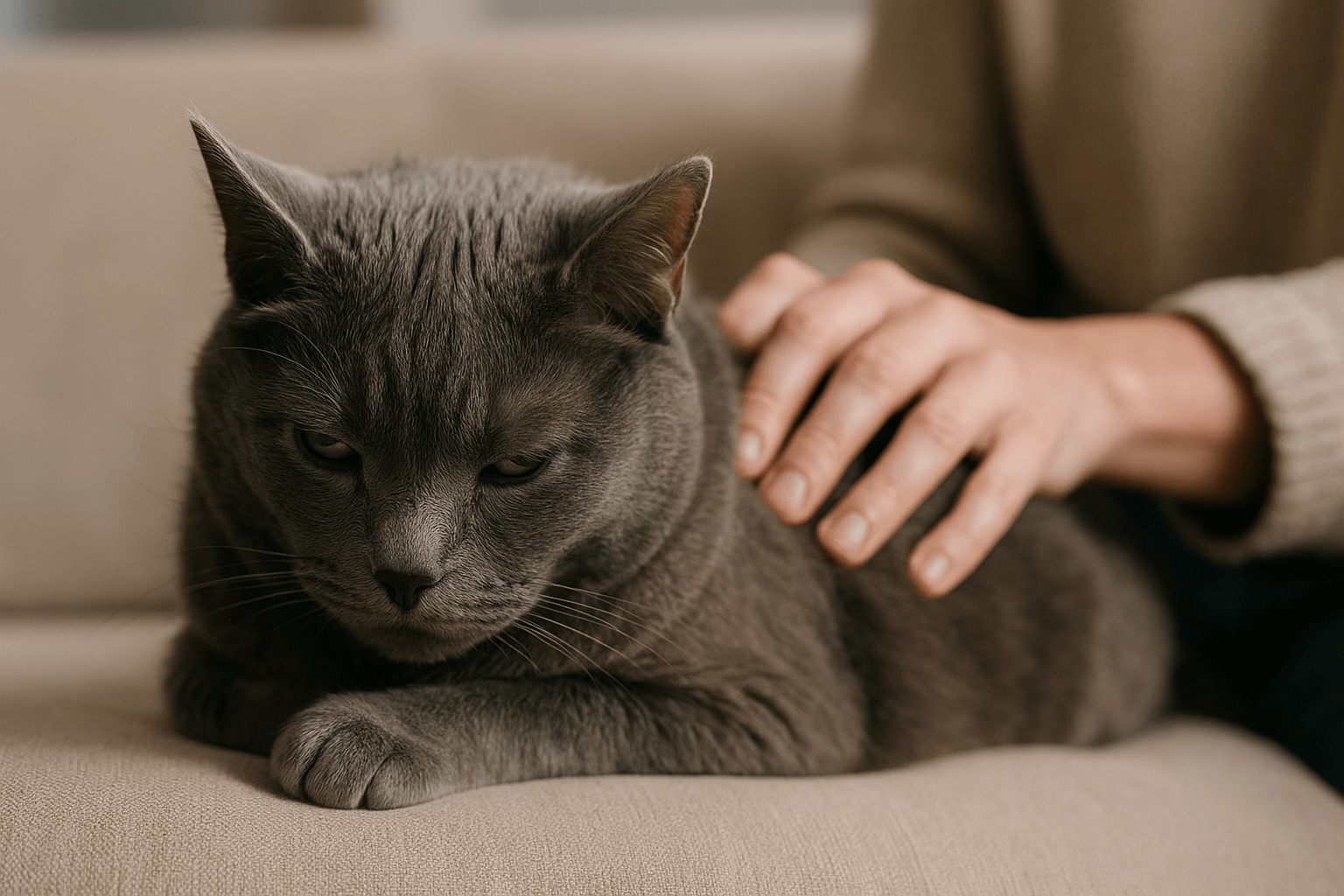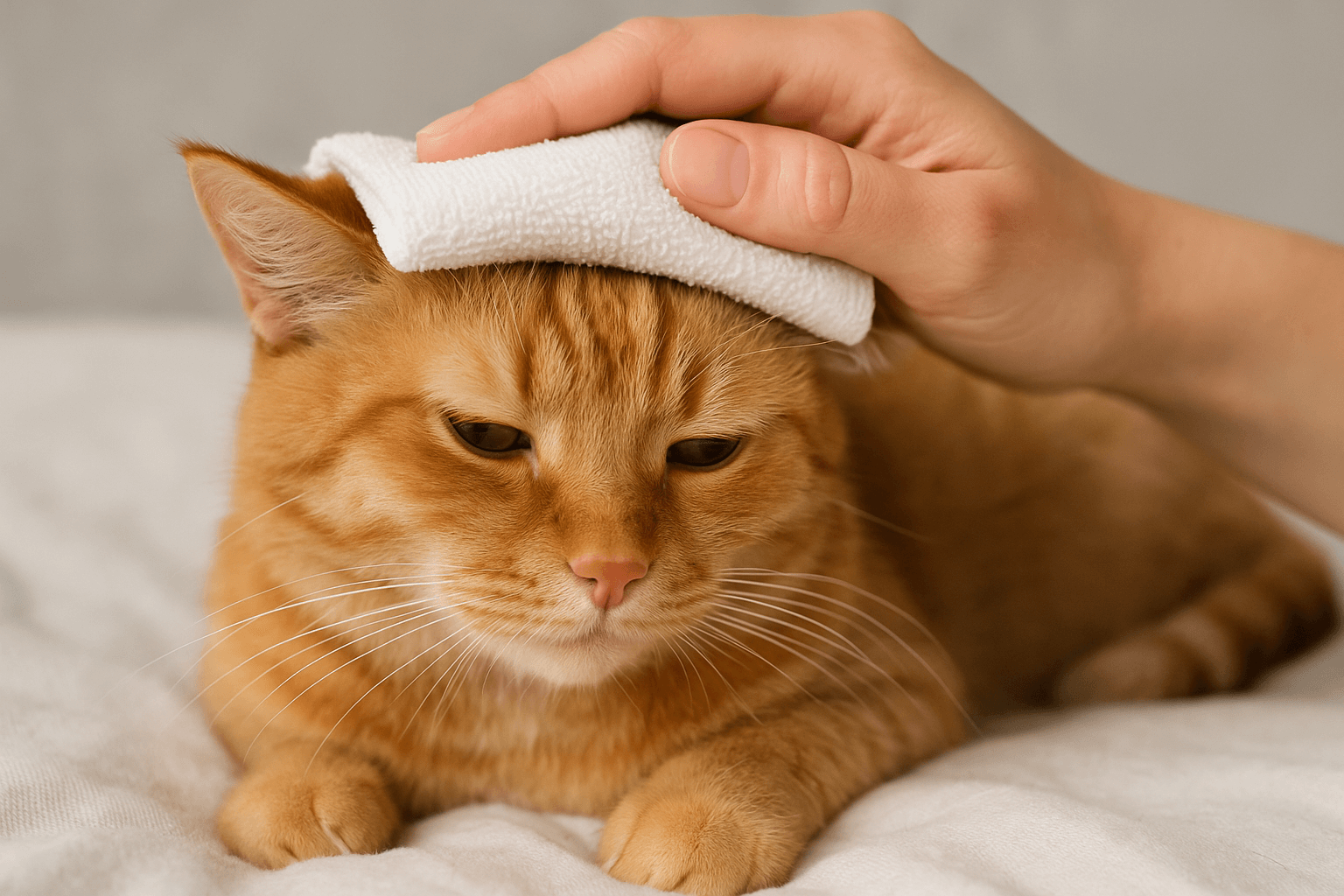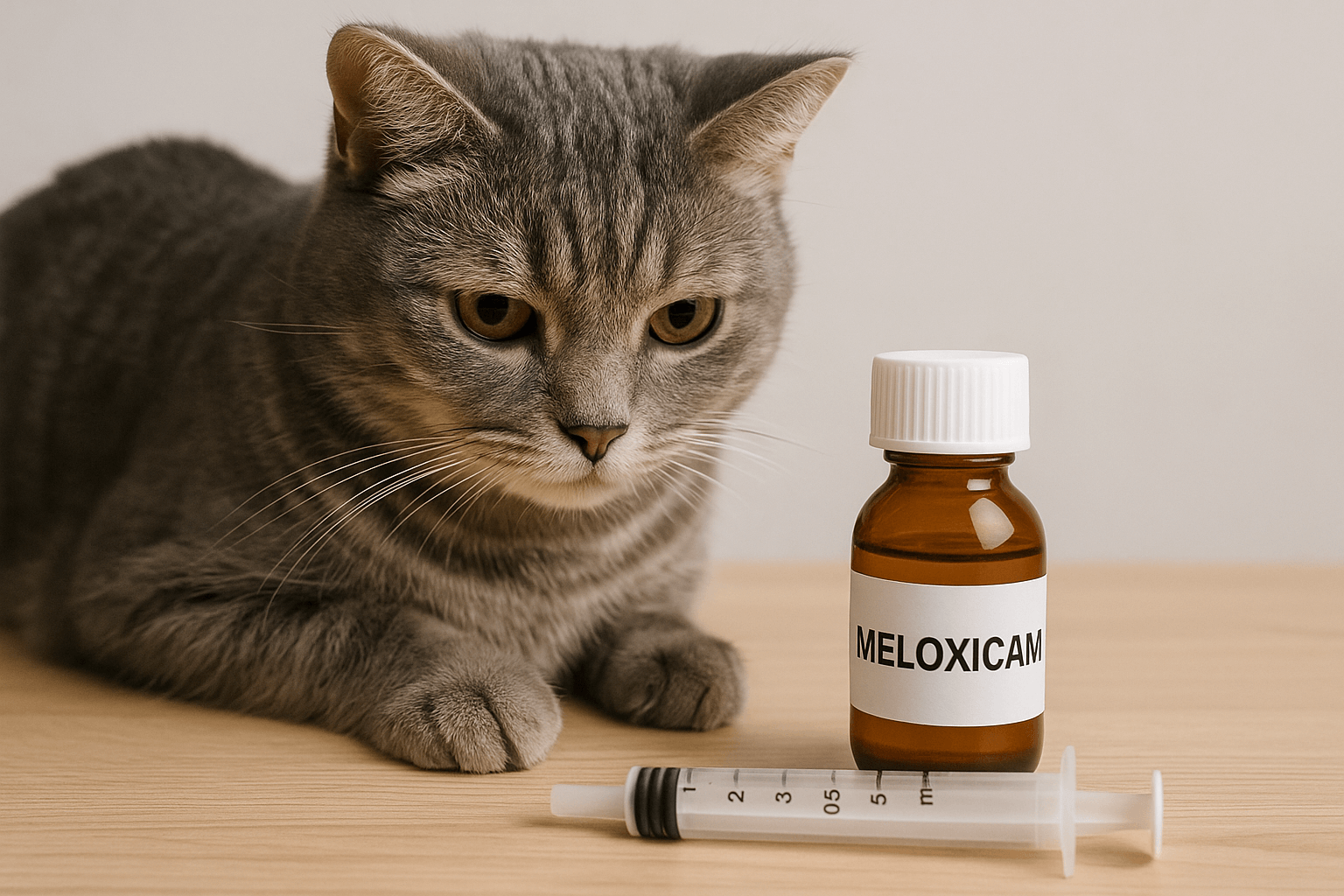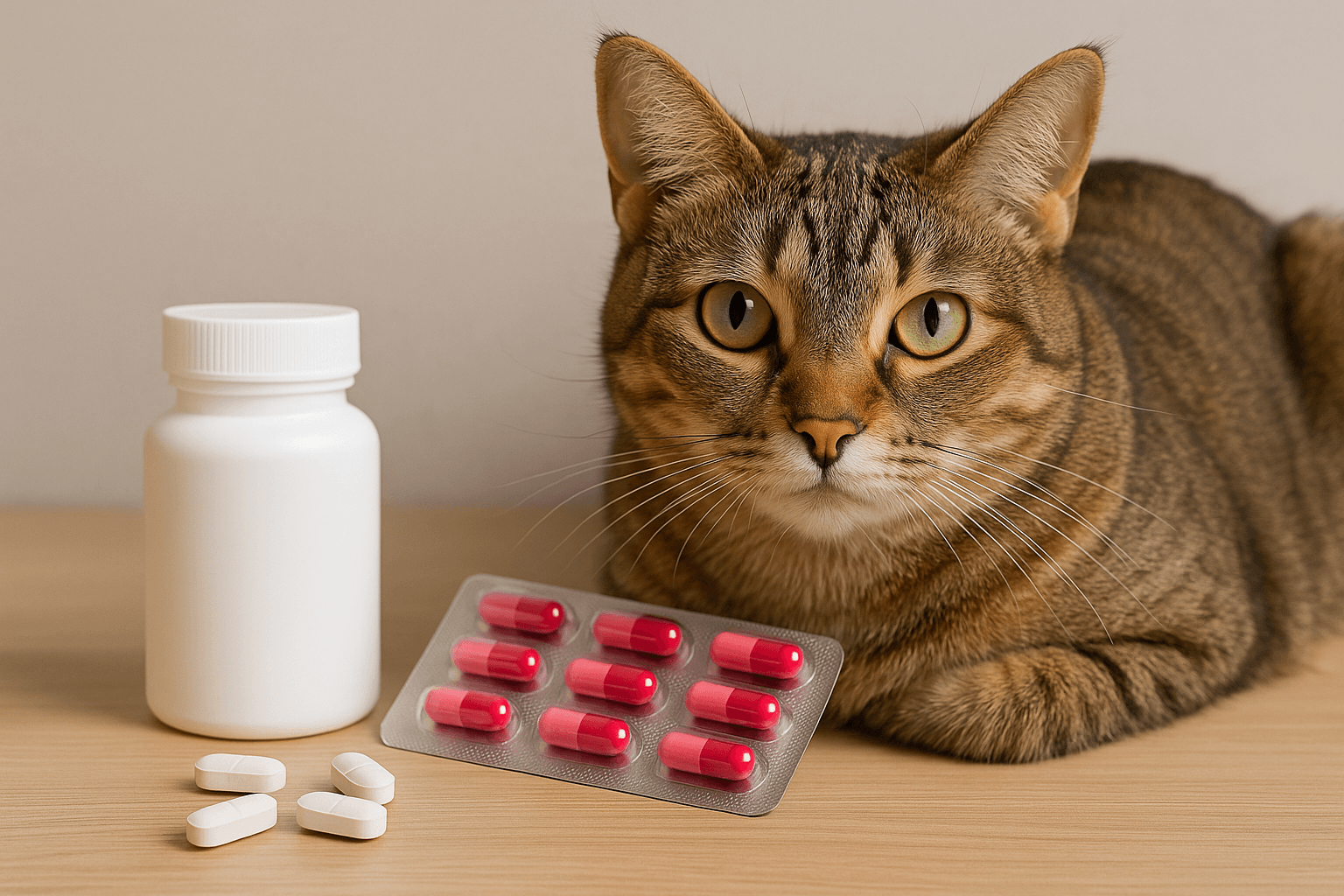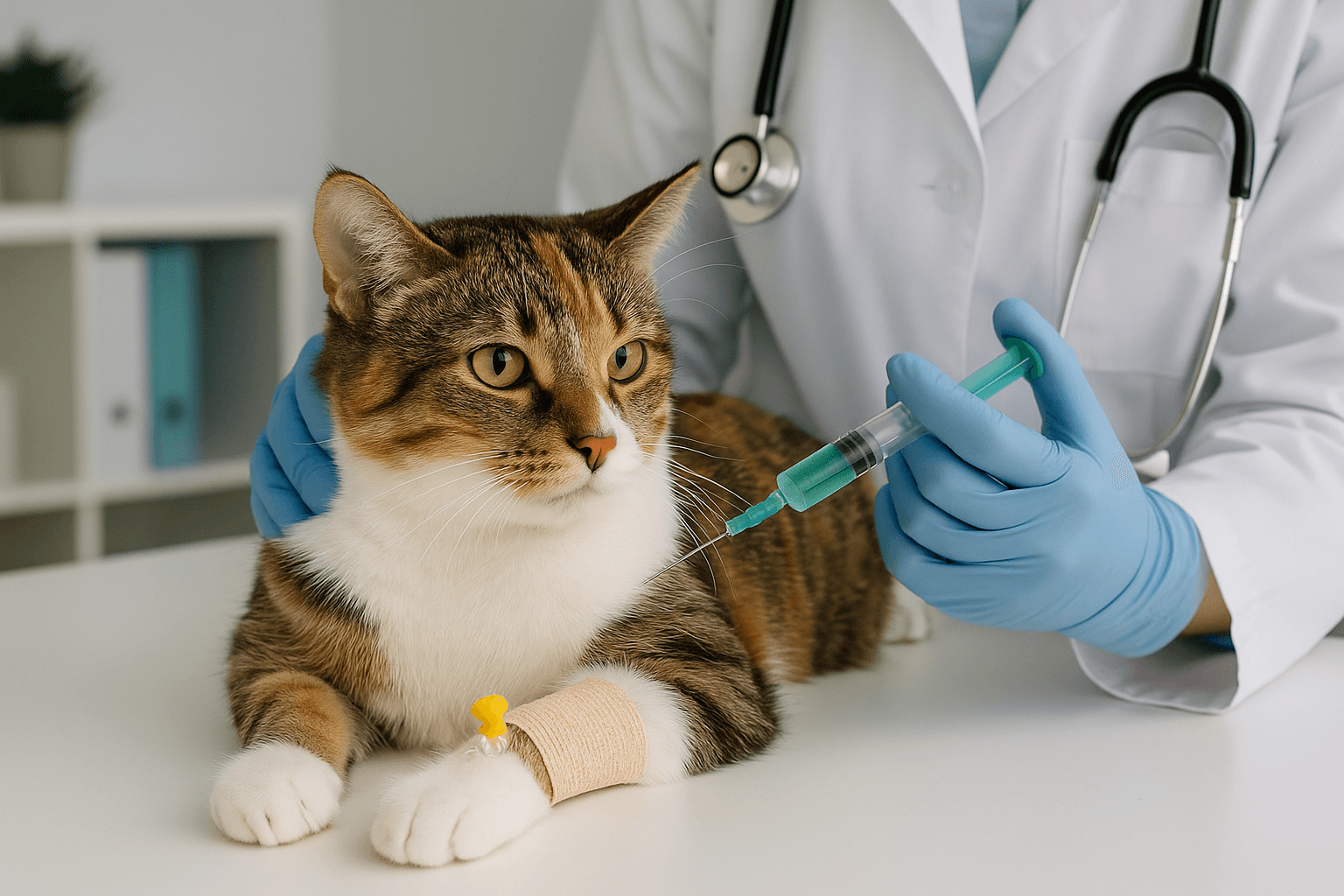Understanding Cat Grief Symptoms: How to Support Your Feline Friend
Cats are often perceived as independent creatures, but they form deep bonds with their human companions and even other pets in the household. When a significant change occurs—such as the loss of a loved one or another pet—cats can experience grief just like humans do. Recognizing cat grief symptoms is crucial for providing the emotional support your feline friend needs during difficult times. From changes in behavior to physical signs of distress, understanding these indicators can help you navigate this challenging period together. Let’s explore how to identify and address cat grief symptoms effectively.
Common Behavioral Changes in Grieving Cats
When a cat is grieving, their behavior often shifts in noticeable ways. These changes can serve as early warning signs that your cat may be struggling emotionally.
Loss of Appetite:
Grieving cats may show little interest in food, even for their favorite treats. This can lead to weight loss if not addressed promptly.Increased Vocalization:
Some cats express their distress through excessive meowing or crying, especially if they’re searching for a missing companion.Withdrawal and Hiding:
A grieving cat might isolate themselves, spending more time under furniture or in quiet corners of the house.Restlessness or Pacing:
Cats may exhibit restless behavior, wandering aimlessly as if searching for the absent individual or pet.Changes in Sleep Patterns:
Grieving cats may sleep more than usual or struggle to settle down at night, indicating emotional turmoil.
These behavioral changes highlight the depth of a cat’s emotional capacity and underscore the importance of offering comfort during times of loss.
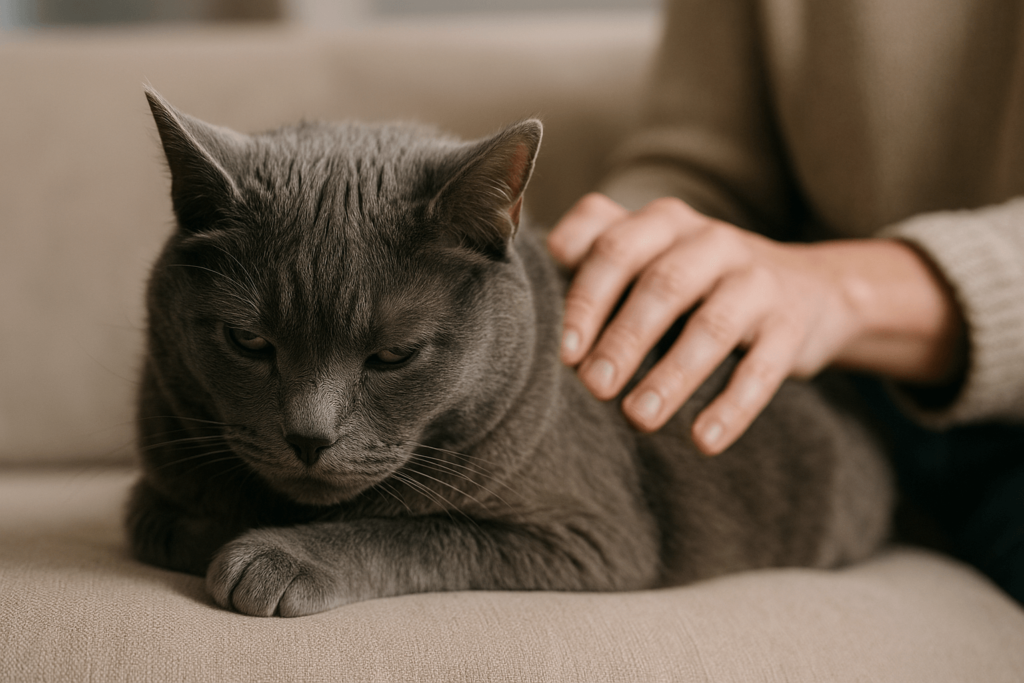
Physical Signs of Grief in Cats
In addition to behavioral changes, grieving cats may display physical symptoms that reflect their emotional state. Monitoring these signs can help you ensure your cat remains healthy despite their grief.
Lethargy and Lack of Energy:
A grieving cat may appear unusually sluggish or uninterested in activities they once enjoyed.Over-Grooming or Under-Grooming:
Some cats groom excessively out of stress, while others neglect their coat entirely, leading to a dull or matted appearance.Digestive Issues:
Stress from grief can cause vomiting, diarrhea, or constipation, which may require veterinary attention.Weight Loss or Gain:
Changes in eating habits can result in noticeable fluctuations in your cat’s weight, signaling an underlying issue.Excessive Shedding:
Emotional stress can trigger shedding beyond the normal amount, leaving more fur around your home.
By staying vigilant about these physical symptoms, you can address potential health concerns while supporting your cat through their grieving process.
Check this guide 👉Cat Appetite Stimulant: Best 7 Expert Tips!
Check this guide 👉How Much Chicken Can a Cat Eat? Best 7 Expert Tips!
Check this guide 👉Why Does My Cat Eat Everything? Best 7 Behavior Tips!
Behavioral Symptoms of Cat Grief | Physical Symptoms of Cat Grief |
|---|---|
Loss of appetite | Lethargy and lack of energy |
Increased vocalization | Over-grooming or under-grooming |
Withdrawal and hiding | Digestive issues (vomiting, diarrhea) |
Restlessness or pacing | Weight loss or gain |
Changes in sleep patterns | Excessive shedding |
How to Help a Grieving Cat Cope
Supporting a grieving cat requires patience, empathy, and proactive measures to ease their transition. Here are practical steps you can take to comfort your feline friend during this challenging time.
Maintain Their Routine:
Stick to your cat’s regular feeding, playtime, and bedtime schedules to provide a sense of stability.Offer Extra Attention:
Spend quality time with your cat through gentle petting, brushing, or simply sitting nearby to reassure them.Introduce New Activities Gradually:
Engage your cat with interactive toys or puzzles to distract them from their sadness and stimulate their mind.Create Safe Spaces:
Provide cozy hiding spots or elevated perches where your cat can retreat when feeling overwhelmed.Consult Your Veterinarian:
If your cat’s symptoms persist or worsen, seek professional advice to rule out underlying medical conditions.
By implementing these strategies, you can help your cat navigate their grief and gradually return to their normal self.
When to Be Concerned About Cat Grief Symptoms
While some level of grief is normal, certain symptoms warrant immediate attention to ensure your cat’s well-being. Knowing when to intervene can prevent complications.
Prolonged Loss of Appetite:
If your cat refuses to eat for more than 24 hours, it could lead to serious health issues like hepatic lipidosis.Severe Lethargy:
Extreme fatigue or unresponsiveness may indicate depression or illness requiring veterinary care.Aggressive Behavior:
Sudden aggression toward people or other pets can signal unresolved stress or discomfort.Persistent Hiding:
Cats who remain secluded for extended periods may need additional encouragement to reengage with their environment.Unexplained Physical Changes:
Rapid weight loss, persistent vomiting, or difficulty grooming should never be ignored and require prompt evaluation.
Recognizing these red flags ensures your cat receives timely support and care during their grieving process.
Ways to Strengthen Your Bond During Grief
Building a stronger connection with your grieving cat can provide comfort and reassurance during tough times. These activities foster trust and companionship.
Engage in Play Therapy:
Use wand toys or laser pointers to encourage playful interactions and boost your cat’s mood.Practice Hand Feeding:
Offering treats or meals by hand can reinforce your bond and entice picky eaters to eat.Use Calming Products:
Items like pheromone diffusers or calming sprays can create a soothing environment for your cat.Spend Quiet Time Together:
Simply sitting near your cat and talking softly can provide comfort without overwhelming them.Introduce Gentle Massage:
Lightly massaging your cat’s back or ears can relax them and strengthen your connection.
These bonding activities help your cat feel secure and loved as they work through their grief.
Understanding the Role of Routine in Healing
Maintaining a consistent routine plays a vital role in helping your cat cope with grief. Predictability provides a sense of safety and normalcy.
Stick to Feeding Times:
Serve meals at the same times each day to establish a reliable schedule.Keep Litter Boxes Clean:
Regular cleaning reduces stress and ensures your cat feels comfortable using their litter box.Follow a Play Schedule:
Dedicate specific times for play to keep your cat mentally stimulated and engaged.Limit Household Changes:
Avoid major rearrangements or introductions of new pets until your cat has adjusted.Provide Consistent Affection:
Offer steady, predictable attention to avoid confusing or overwhelming your cat.
A stable routine helps your cat regain confidence and adapt to their new reality.
Coping Strategies for Multi-Cat Households
In homes with multiple cats, the loss of a companion can affect the entire group dynamic. Supporting all cats during this time is essential for harmony.
Monitor Interactions:
Observe how remaining cats interact, as some may become clingy or aggressive due to stress.Facilitate Shared Activities:
Encourage group play or shared meal times to rebuild social bonds among the cats.Provide Individual Attention:
Spend one-on-one time with each cat to ensure no one feels neglected or overlooked.Respect Hierarchies:
Maintain established social structures to avoid conflicts or territorial disputes.Watch for Copycat Behavior:
One grieving cat may influence others, so address symptoms early to prevent escalation.
By addressing the needs of all cats, you can restore balance and peace to your multi-cat household.
Frequently Asked Questions About Cat Grief Symptoms
How long does cat grief typically last?
The duration varies depending on the cat, but most adjust within a few weeks to months.
Can cats grieve the loss of a human?
Yes, cats can form strong bonds with humans and may grieve their absence deeply.
Should I get another pet to help my grieving cat?
Introducing a new pet too soon can overwhelm your cat. Wait until they’ve had time to heal before considering this option.
Do all cats show grief symptoms?
Not all cats exhibit obvious signs of grief; some may cope internally without outward changes.
Is medication necessary for grieving cats?
Medication is rarely needed unless prescribed by a vet to address severe anxiety or depression.
Helping Your Cat Heal Through Compassion and Care
Grieving is a natural part of life, and cats, like humans, need time and support to process their emotions. By recognizing cat grief symptoms and taking proactive steps to comfort your feline friend, you can help them navigate this difficult period with love and understanding. Remember, every cat grieves differently, so patience and observation are key. With your guidance and care, your cat will eventually find peace and return to their happy, affectionate self.
Cat Fever Treatment: Best 7 Expert Tips! Discover expert advice on identifying, managing, and treating fever in cats to ensure their quick recovery and well-being.
Understanding Meloxicam for Cats: Best 7 Expert Tips! Learn how to safely administer meloxicam, manage side effects, and ensure your cat's comfort with expert advice on feline pain relief.
Amoxicillin for Cat UTI: Best 7 Expert Tips! Discover safe usage, dosage guidelines, and expert advice on treating feline urinary tract infections effectively with amoxicillin.
Understanding Cat Cancer Treatment: Best 7 Expert Tips! Discover expert advice on managing feline cancer, from early detection to treatment options, ensuring your cat’s health and comfort.

